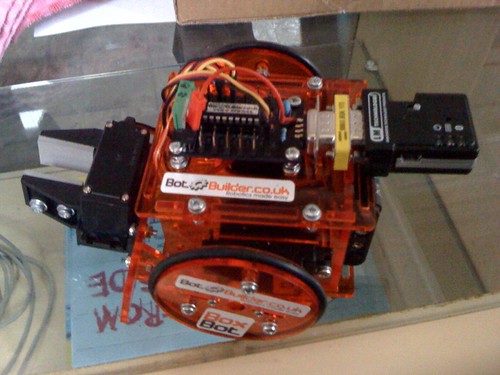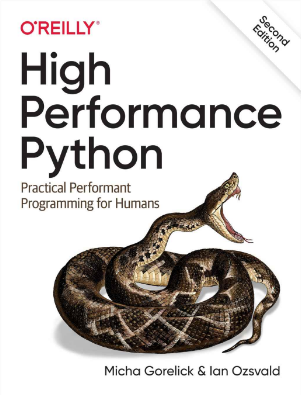Entrepreneurial Geekiness

‘Learning by solving tests’ – a website we could do with?
I’ve often wondered why we don’t see more test-driven websites which test our knowledge of the subject matter. A great example is the Python Challenge website, Nadav Samet built a great tool to test our Python knowledge – you have to be able to code (only some of the tests really need Python) to solve each stage of the tests.
To do well in that Challenge you have to enjoy problem solving and keep hacking away, you can’t cheat so you just have to be persistent.
Why don’t we see this sort of site more frequently? How about one for learning to code? In the Python Challenge you set your answer to be the url of the next question – if you get it right you progress – but you never submit any code.
Why about using something like Crunchy to let me submit snippets of Python which run either locally or perhaps remotely in a secured, cut-down Python environment where my code is uploaded and evaluated. Sure, it gets hard if the code is non-trivial, but many learner-level problems can be solved with relatively trivial code snippets. Wouldn’t this help people learn faster? Having feedback when you get it wrong pointing at articles or example answers would be lovely to help you progress.
I often feel stupid when I realise that arguably the world’s most popular programming language – Javascript – is entirely foreign to me. I can solve hard A.I. problems and have just spent 4 years working on one for the physics industry (using Python, Matlab and C++) but I can’t write a single line of Javascript. I don’t ‘need’ Javascript so I never set out to learn it, I would love to have at least a passing ability to read and write it though.
If the above ‘challenge’ idea was applied to a site where talented people wrote interesting tests, I’m sure many of us would join (and pay?) to advance our knowledge. We’d do it for fun and the intellectual stimulation, knowing that I’m learning on an ad-hoc basis and solving tasks (and gaining points and rep?) would be a nice motivator.
I suspect that if I could submit my own challenges and they were rated as ‘challenging and good’ by others, I’d also earn a useful reputation for myself (a bit like Stack Overflow does for problem solving).
Maybe the challenges could be embedded into your own site, ShowMeDo.com might use them to introduce people to the basics of programming where the tutorial videos helped people answer the questions.
Maybe you’d use the challenges to force people to prove their competence at certain topics before e.g. they could join certain forums.
If you have an opinion of whether this is a crazy idea (or not), I’d love to hear it…
Ian is a Chief Interim Data Scientist via his Mor Consulting. Sign-up for Data Science tutorials in London and to hear about his data science thoughts and jobs. He lives in London, is walked by his high energy Springer Spaniel and is a consumer of fine coffees.
Recognising number plates to make drivers’ ‘social network’?
Warning – this is a rambling mental outpouring generated during my drive home today…
Often when driving I muse on the future possibility of seeing an AR overlay on my windscreen telling me a bit about other drivers – principally whether or any of these drivers are nutters who will drive dangerously. Sometimes it is nice to know that someone is ‘often polite’ – we’d be more likely to reciprocate and let them out of a tricky junction if we knew they often behaved this way.
How could this information be collected? Assuming we can id the car (or better – the driver) I’d assume we could easily leave a vote for or against a driver. The UI would need some thinking (verbal might be nice?) but assuming a simple feedback mechanism were possible, you could build some very useful information into this network.
The other obvious problem is how to identify the driver? I’ve wondered about having iPhones and mobile devices sharing their id locally but that opens privacy worries – what about automatic number plate recognition? Cars are normally driven by one person so if you tag driving style to a car, you’ve got a fair chance of characterising the driver.
My girlfriend and I share both our cars so the accuracy for us would be 50/50 but I think we drive ‘similarly enough’ that aggregate statistics wouldn’t be too inaccurate. Maybe I’m wrong.
Future cars are more likely to include cameras for collision avoidance (ok, a camera might be overkill, IR distance measurement may be adequate?) and possibly for insurance claims. I don’t see why a set of geeks wouldn’t mount a laptop with camera into a car and build their own ad-hoc drivers information network.
Any takers?
Ian is a Chief Interim Data Scientist via his Mor Consulting. Sign-up for Data Science tutorials in London and to hear about his data science thoughts and jobs. He lives in London, is walked by his high energy Springer Spaniel and is a consumer of fine coffees.
BarCamp and “Screencasting in 7 Minutes with Jing” workshop
Jay, Jon and co. ran another excellent BarCamp Brighton this weekend which followed dConstruct09. There’s a long, good write-up here.
I’m not entirely sure of the right tag for flickr – it seems that ‘bcb4’ (which I’d thought was official) conflicts with BarCamp Bangalore and BarCamp Boston…ho hum. Anyhow, here’s one of mine:

My session was a 30 minute workshop on ‘Screencasting in 7 minutes with Jing‘ (now picked up by TechSmith – thanks Betsy!), I signed-up 7 new people to screencasting including freelancers and a Thales employee so I consider that a Win. The link has a break-down of what was covered, a video of the session and the resulting screencast by Jez via my machine.
In the session I covered the following as examples of how screencasts are used by others:
- Jay’s Gibraltar Software screencast produced in 3 days with Camtasia on Windows (via my friendly critique)
- Google Chrome screencasts for examples of 10-20 second feature tours
- DropBox intro screencast which shows two computers syncing (via a virtual Windows instance) – see the Windows desktop about 1/6th of the way into the video
- ShowMeDo’s OpenStreetMap videos for open-source tutorials
- MailChimp’s homepage video as a warning – lots of style (it is quite pretty) but very little informative content!
Musical entertainment was provided by 100 Robots (Jim of SecondLife and Max, Alex was absent so we had Jim loudly on the vocals), the foundation of the Old Music Library shook nicely:
Ian is a Chief Interim Data Scientist via his Mor Consulting. Sign-up for Data Science tutorials in London and to hear about his data science thoughts and jobs. He lives in London, is walked by his high energy Springer Spaniel and is a consumer of fine coffees.
@NeilCauldwell if you’re boot-…
@NeilCauldwell if you’re boot-strapping, check out my http://TheScreencastingHandbook.com/ – early stages but the book is growing
@fellowcreative thanks for the…
@fellowcreative thanks for the recommendation 🙂 @NeilCauldwell email if you want to chat…
Read my book

Oreilly High Performance Python by Micha Gorelick & Ian Ozsvald AI Consulting
Co-organiser
Trending Now
1Leadership discussion session at PyDataLondon 2024Data science, pydata, RebelAI2What I’ve been up to since 2022pydata, Python3Upcoming discussion calls for Team Structure and Buidling a Backlog for data science leadsData science, pydata, Python4My first commit to PandasPython5Skinny Pandas Riding on a Rocket at PyDataGlobal 2020Data science, pydata, PythonTags
Aim Api Artificial Intelligence Blog Brighton Conferences Cookbook Demo Ebook Email Emily Face Detection Few Days Google High Performance Iphone Kyran Laptop Linux London Lt Map Natural Language Processing Nbsp Nltk Numpy Optical Character Recognition Pycon Python Python Mailing Python Tutorial Robots Running Santiago Seb Skiff Slides Startups Tweet Tweets Twitter Ubuntu Ups Vimeo Wikipedia

